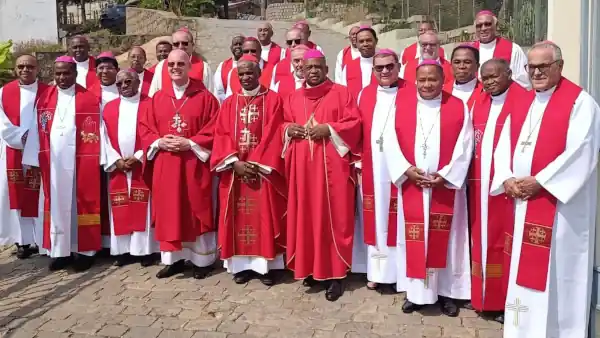02 November - The Commemoration of the Dead was instituted to obtain from God the deliverance or relief of souls from purgatory. The Office of the Dead originated in the wake of the dead that the first Christians held following the example of the Jews.
In the first centuries of Christianity, prayers, and then masses, were said for the deceased. The first texts that speak of a specific office for the dead date from the 9th century. Amalaire, deacon then abbot of Metz, mentions it in De ecclesiasticis officiis written around 820. In 998, Odilon, abbot of Cluny, instituted a day dedicated to the commemoration of all the deceased faithful on November 2. Pope Leo IX approved this decision. The commemoration of the deceased faithful then spread throughout Christianity. In the 13th century, it became part of the Roman liturgy and became a universal feast in the Church. If it commemorates the dead, this celebration is also, in a sense, the feast of the living. The Catholic Church professes faith in the immortality of the soul. Prayer for those who have left us is thus marked with the seal of hope.
This celebration is mentioned in Vatican Council II: "So then, while waiting for the Lord to come in his majesty, accompanied by all the angels (cf. Mt 25, 31) and for death destroyed, everything to be submitted to him , some of his disciples continue their pilgrimage on earth; others, having finished their life, are still purifying themselves; others are in glory, contemplating "in the full light, such as he is, the one God. in three Persons "(LG 49). And the reason is quoted in the Second Book of Maccabees:" This is why he made this atonement sacrifice, that the dead may be delivered from their sins ".








